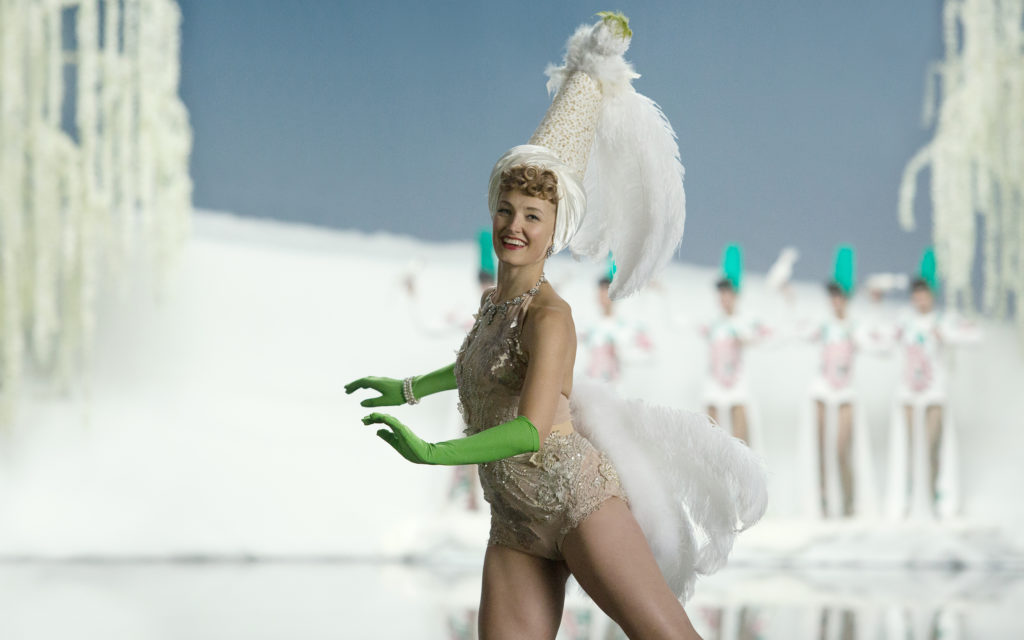Anne Sewitsky is a Norwegian-American filmmaker. Her debut film, “Happy Happy,” won the Grand Jury Prize at Sundance 2011 and was Norway’s Academy Award entry the same year. Her next film, “Homesick,” premiered at Sundance and was Norway’s submission for the 88th Academy Awards.
“Sonja – The White Swan” will premiere at the 2019 Sundance Film Festival on January 29.
W&H: Describe the film for us in your own words.
AS: “Sonja – The White Swan” is a portrait of Sonja Henie, the inventor of modern figure skating who went to Hollywood to become a movie star on skates in the 1940s.
It is a rise and fall film about stardom, money, and a family tragedy between a brother and sister.
W&H: What drew you to this story?
AS: I guess what drew me to this story was Sonja’s odd, ambitious character. An athlete and film star who got everything she pointed at and who seemingly had the perfect life, Sonja’s life went downhill when her lack of interpersonal skills reached the surface and revealed a very lonely person. Sonja didn’t understand how to deal with [problems]. Instead, she kept going, pushing every close person in her life away.
I also found it interesting to see how Sonja challenged the classical way of viewing women of her time. She didn’t play by any rules.
W&H: What do you want people to think about when they are leaving the theater?
AS: The film is not about a hero, but hopefully about a whole, vulnerable person. I hope the audience leaves the theater feeling for Sonja despite her highly unsympathetic sides.
W&H: What was the biggest challenge in making the film?
AS: It was difficult choosing the angle of the story since Sonja had such an amazing life. Boiling it down to what it became was a long, intense process.
Also, I knew nothing about skating! Diving into the world of skates, choreography, and sets was a world of so many unexpected challenges.
Another challenge: making a “Hollywood” biopic movie from the ’40s on a Norwegian budget often felt like an impossible task.
W&H: How did you get your film funded? Share some insights into how you got the film made.
AS: The film was funded by the Norwegian Film Institute with co-production funding from Ireland and Scandinavia. It was shot in Spain and Romania, creating LA and Mexico locations there.
W&H: What inspired you to become a filmmaker?
AS: To be honest, it was a bit random how I became a filmmaker, so inspiration came from everywhere. I had studied theology and considered becoming a priest. Then I lost my faith, so I studied music. Then I travelled a lot, then I studied some art, and then I made a documentary and quit some different things.
The confusion of it all made someone tell me I should go to film school, so I did. For the first time I felt like I was in the right place. I guess trying to explore complicated behavior is a kind of inspiration.
W&H: What’s the best and worst advice you’ve received?
AS: The best advice I’ve received: Learn all the basics first, then throw them away and follow your instincts.
Worst: Proclaim your leadership and people will follow. Demand crazy things and people will see you as a genius director.
W&H: What advice do you have for other female directors?
AS: Perhaps easier to say than execute, but don’t let fear get in the way. Almost all experience is good experience. Filmmaking is always a collaboration, but finding the confidence to trust your own instincts is essential. In the end you can only hope that the way you view things is also interesting for others.
W&H: It’s been a little over a year since the reckoning in Hollywood and the global film industry began. What differences have you noticed since the #MeToo and #TimesUp movements launched?
AS: I’ve noticed that, in general, the amount of focus has made everyone much more aware [of problems in the industry] and empowering for women in the business has become more of a goal.







